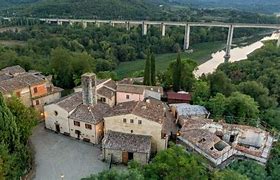
This is the first of two posts I will write covering my trip to Rondine, where Gretchen and I will be heading in a few hours. As our departure date kept getting nearer, the trip getting weirder in ways that have little or nothing to do with Rondine itself—that will be the topic of next week’s post.
Rather, the way the visit has come together has thrown me for a loop, because it has forced me to rethink a number of things that have happened to me since I was ten and helped make me who I am today, more than sixty years later.
And while my life history is rarely worth discussing in these posts, it might be here. And in peculiar ways which you must might find interesting. If not useful.
YMCA Camp Hazen and Nick Kraczyna
From the time I was ten through the summer after I graduated from college, I was a camper and then a counselor at YMCA Camp Hazen in Chester CT. It had a huge impact on my life then in ways that continue to this day. For example, the camp’s director helped me make my case for conscientious objector status and had enough faith in me to name this Jewish kid the camp’s religious emphasis director the final summer I worked there. It was the camp, too, that kindled my interest in teaching and led me to the realization that I wasn’t just teaching canoeing (there) or political science (later). I was helping “whole students” grow.
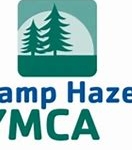
That was driven home on my first day teaching at Colby when a student came up to me after my first class and asked, “weren’t you my camp counselor when I was ten?” Sure enough. Mark Howard had been my camper, and a delightful one at that. He was also a delightful college senior who helped me figure out that I had to figure out how to reach to the whole young adult in my classes and not see them just as budding political scientists.
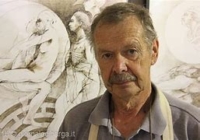
It was at Hazen, too, that I met Nick Kraczyna who ran its arts and crafts the program for my entire time there. I may have been the worst arts and crafts camper he ever had, but we became friends. Perhaps more importantly, my parents ended up supporting his career as an artist which led him to move to Florence in the mid 1960s where he build an amazing career as an artist and teacher.
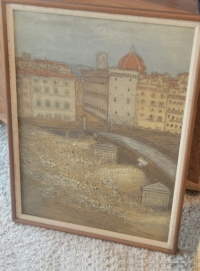
We got back in touch with each other after my mother died and we had to figure out how to get his artwork that she owned that neither my sister nor I had room for—though I’m keeping this woodcut of the Arno overflowing its banks in the mid 1960s.
In a weird way, Nick’s personal history also overlaps with I do and why I’m going to Rondine. He was born in Poland in 1940, ended up in a displaced persons camp after the war, and then was resettled to New Haven which is how he got to the Rhode Island School of Design and Camp Hazen and into my life.
Rondine brings young adults from war-torn countries and brings them to Tuscany for two years of therapy, Peacebuilding training, and a graduate degree. Few are actual refugees like Nick was, but all have experienced a version of the trauma that he must have grown up with.
We never talked about all this when we knew each other in the 1960s/ We will when we see each other this Tuesday evening.
A Summer in Gorizia
The one summer I didn’t go to Camp Hazen, I was an American Field Service exchange student in Gorizia Italy. It was a life changing summer. My host family were neofascists, but I ended up playing basketball with mostly Communist kids. It was 1964 so I spent a lot of time explaining why my country was getting involved in Vietnam and why we denied civil rights to African Americans. In Italian.

I came home from that summer knowing that my earlier plans to become mathematician or an engineer probably weren’t going to work out. Little did I know.
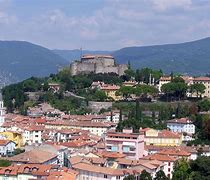
The PhD That Didn’t Quite Happen
After majoring in ending the war in Vietnam at Oberlin, I started a PhD in political science at Michigan. In part because its American politics professors weren’t interested in helping me develop my radical organizing skills, I shifted to comparative politics and decided to write a PhD dissertation on the new left in France and Italy. At the time, my Italian was actually better than my French (thanks to my time in Gorizia), so I figured I would do something on the PSU in France organizations like the PSIUP party in Italy and Il Manifesto, a new left journalistic project that still exists as a struggling daily newspaper.
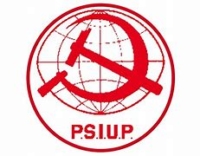
Because I couldn’t get funding for the two years of field work that this project would have required and because there were more jobs available for French politics specialists, I dropped Italy and frankly didn’t think much about political life there until my mentor Robert Putnam included Italian data in his work on democracy in the 1990s, which has also curiously reappeared in my life now that I’m involved in promoting a documentary about his work, Join or Die.
Stumbling onto Rondine
In the mid-1980s, began my transition from political science into peacebuilding (a far bigger leap than you might think and perhaps the topic of a future post) taking with it any residual connection to things Italian, including the language. Then, in early 2019, my friends at AfP asked me to speak at an event organized by Rondine, which I had never heard of. They sent me a copy of a book they had published in English and Italian, and nerd that I am, I read it (in both languages) before showing up at the embassy. That encounter changed my life both by exposing me about its method and by introducing me to Miguel Diaz with whom I later coedited a book on the remarkable village and its work. Meanwhile, Miguel has become a close friend and fellow member of the AfP board. In fact, we are heading to Italy a couple of days early to spend some time with Miguel and his husband at the villa which a friend of his has bought, retired to, and renovated in part so Miguel can use it for peacebuilding purposes.
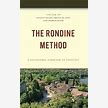
We are heading this time to be part of its end of year celebration (I have to give two talks, including one in Italian, made possible by Google translate), plan a marketing program for the book, and, more generally, help the Rondine team make plans for its own future that take it beyond its amazing village (where the Mona Lisa might have been painted by the way. Probably not, but it is at least a plausible story).

Shortly after the pandemic began, I also encountered the work of Zebras Unite which is building a new economy based on worker-owned and similar startups. They had been inspired by coops like Mondragon in Spain and dozens of loosely associated ones in Emlia-Romagna which is right around the clichéd corner from Rondine and which had also been at the heart of Bob Putnam’s work on democracy. To square the circle, one of the Zebras’ founding doulas visited Rondine and came home convinced that its thirteenth century castle tower would be an ideal spot to create a tech incubator.
Two New Friends
Finally, as we were making final plans for the trip, I met two people who may or may not get to Rondine this weekend. Their visit is iffy enough and our friendships are new enough that I won’t mention them by name. Rather, just point out that one works for the UN’s training college in Turin and the other is a new member of the AfP family who has worked in FinTech and will be in Florence visiting friends this weekend.
At any rate, time to finish packing the bags in time to at least see a glimpse of our granddaughter and her Girl Scout troop march in the Falls Church Memorial Day parade (which defies all stereotypes of Memorial Day parades), and then head to the airport and our firstf flight—and encounter with jet lag—in five years.
The views and opinions expressed in this article are those of the author and do not necessarily reflect the official policy or position of the Alliance for Peacebuilding or its members.
